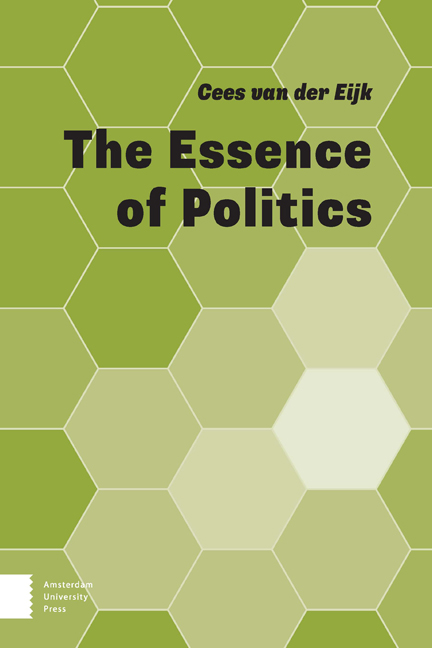Book contents
- Frontmatter
- Dedication
- Preface
- Contents
- Chapter 1 What is Politics?
- Chapter 2 Conflict and Cooperation
- Chapter 3 Key Questions
- Chapter 4 Political Actors
- Chapter 5 Political Conflicts
- Chapter 6 Political Power
- Chapter 7 The Political Landscape and the Wider Context
- Chapter 8 The Political System and the Political Community
- Bibliography
Chapter 7 - The Political Landscape and the Wider Context
- Frontmatter
- Dedication
- Preface
- Contents
- Chapter 1 What is Politics?
- Chapter 2 Conflict and Cooperation
- Chapter 3 Key Questions
- Chapter 4 Political Actors
- Chapter 5 Political Conflicts
- Chapter 6 Political Power
- Chapter 7 The Political Landscape and the Wider Context
- Chapter 8 The Political System and the Political Community
- Bibliography
Summary
Politics does not exist in a vacuum. It has a context which affects and constrains it. This context, and in particular its stable aspects, determines to a large extent our experiences and our thinking, our perceptions of the world, our expectations, and our ideas about ‘normality’. It therefore also affects our norms and values – even if these are not universally shared in a society – and our perceptions of ourselves and of how we differ from others. The context, therefore, constitutes an important foundation for our goals and interests and thus also for relations of conflict and cooperation. It determines to a very large degree the available options for behaviour and choices for actors, and particularly the options that are not open to them. All in all, without an adequate understanding of the context it is impossible to comprehend the political aspects of human behaviour and interactions.
The context is for most people (political actors and non-actors alike – see Chapter 4) something beyond their control, at least in the short run. It embodies many of the structural power relations discussed in Chapter 6. This does not imply that the context is unalterable, as is amply illustrated by the historical developments of societies. But many of those changes occur gradually, and not necessarily as an intended consequence of conscious human actions.
This chapter distinguishes two components of the context: the ‘political landscape’ on the one hand, and the ‘wider context’ on the other. The political landscape is very directly related to ongoing political processes; that is, to conflict and cooperation about matters that have to be settled for a society or a community (see Chapter 1). It consists of the institutions and ‘rules of the game’ that organise and structure political processes. The wider context relates to other aspects of human behaviour and interaction such as those in the economic or social sphere, and to non-human aspects such as the physical world, the climate, eco-systems and so on. The demarcation between the political landscape and the wider context is sometimes blurred, and often of little relevance for individual people (particularly if they are not part of a political elite), since both provide opportunities and constraints for the realisation of goals, for conflict and cooperation, and for what to do.
- Type
- Chapter
- Information
- The Essence of Politics , pp. 103 - 120Publisher: Amsterdam University PressPrint publication year: 2018



